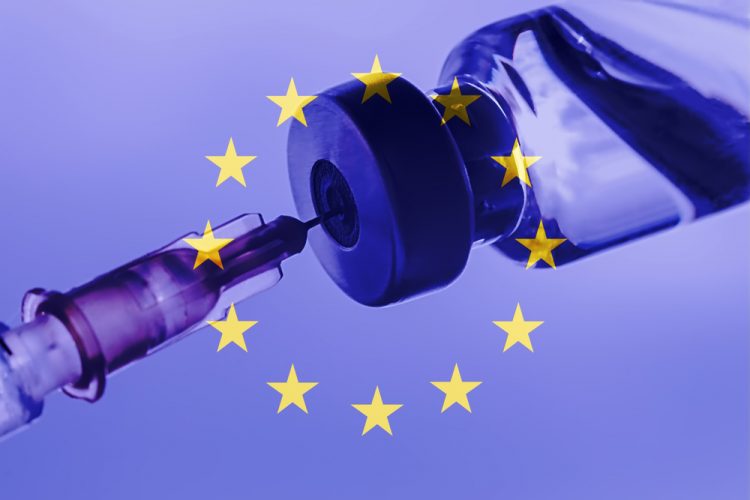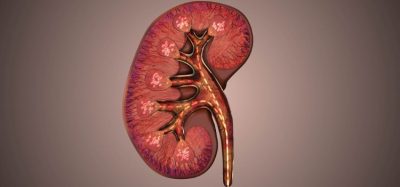EMA issues its requirements for adapting COVID-19 vaccines for viral variants
Posted: 26 February 2021 | Hannah Balfour (European Pharmaceutical Review) | No comments yet
The European Medicines Agency has set out its guidelines for vaccine manufacturers adapting their approved COVID-19 vaccines to combat viral variants.


The European Medicines Agency (EMA) has published guidance outlining the requirements for manufacturers planning to modify their approved COVID-19 vaccines to combat emerging SARS-CoV-2 variants. SARS-CoV-2 is the virus that causes novel coronavirus disease 2019 (COVID-19).
There are currently three vaccines authorised for use in the EU: COMIRNATY®, COVID-19 Vaccine Moderna and COVID-19 Vaccine AstraZeneca. While these three vaccines have been shown to be effective against the SARS-CoV-2 strains circulating in Europe, initial data has suggested that some variants, in particular B.1.351 – originally identified in South Africa – may have an impact on the level of protection provided by COVID-19 vaccines against infection and disease. Therefore, it has been suggested that to ensure continued protection, authorised vaccines may need to be adapted for new emerging variants.
As such, EMA said it is an urgent public health priority to define an expedited regulatory process for the adaptation of vaccines to protect against current or future variants. While there are ongoing discussions at the international level on how to approach variants and vaccines in a coordinated way, the EMA’s human medicines committee (CHMP) has adopted a reflection paper which details the laboratory (non-clinical), clinical, quality and manufacturing data needed to support the approval of such ‘variant’ vaccines.
The guidance assumes the modified product largely rely on the same technology and platform as the EMA-authorised ‘parent’ vaccine, but with differences in the antigen selected to trigger the immune response in the body.
Clinical trial requirements
The guidance states that for clinical trials, large-scale safety and efficacy studies are not needed, but the efficacy should be demonstrated in immunogenicity studies that are designed to investigate the immune response triggered by the variant vaccine against the variant virus.
The CHMP recommends that at least one clinical trial is conducted in subjects that are naïve (have not been vaccinated and have never been infected with SARS-CoV-2).
The trials should also include a bridging study, in which a small group of patients is randomly assigned to receive either the parent or the variant vaccine. This is intended to gather evidence to demonstrate that the immune response, measured as neutralising antibodies, triggered by the variant vaccine against the variant virus is of the same magnitude as the immune response elicited by the parent vaccine against the parent virus.
If this is not possible, eg, due to ethical concerns, a comparison between immune responses triggered by vaccination with the variant vaccine against the variant strain and prior data on the immune response with the parent vaccine against the parent strain, could suffice.
Manufacturers should also study the efficacy of the variant vaccine when given as a single dose, as a booster and to subjects previously vaccinated with the parent vaccine. The immune response induced by one dose of the variant vaccine against the variant strain should be compared with the immune response recorded during clinical trials with the parent vaccine against the parent strain of the virus.
Post-authorisation studies will be set up to monitor the long-term safety and effectiveness of variant COVID-19 vaccines.
Preclinical data
The EMA will not require any additional laboratory studies, but they are conducted the CHMP will evaluate the results with the clinical data.
Quality and manufacturing
The variant vaccine is expected to be produced by the same manufacturer and in line with processes and controls used for the parent vaccine. The manufacturer will need to generate data that show that the quality of the variant vaccine complies with the standards set for the parent vaccine.
In the case of a multivalent vaccine, ie, if the variant vaccine includes both variant and parent viral antigens, additional evidence may be required to ensure the quality of the active substances and the finished product.
Related topics
Biologics, Clinical Trials, Drug Development, Drug Safety, Research & Development (R&D), Vaccines, Viruses
Related organisations
EMA's Committee for Medicinal Products for Human Use (CHMP), The European Medicines Agency (EMA)
Related drugs
COMIRNATY®, COVID-19 Vaccine AstraZeneca, COVID-19 Vaccine Moderna









